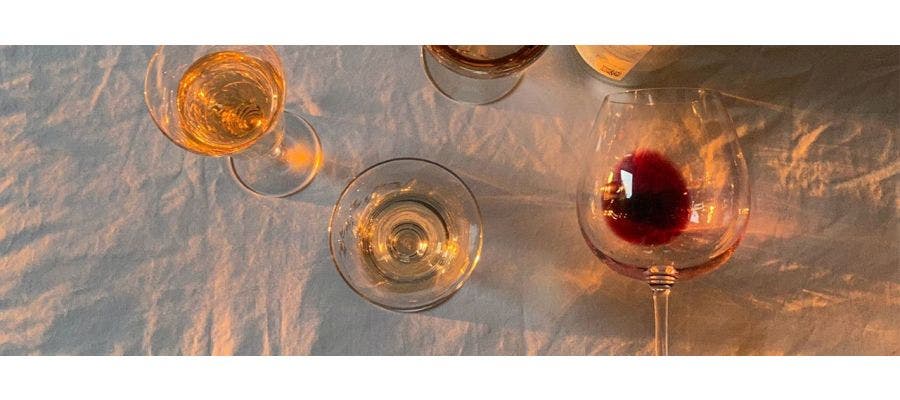
“New year, new me,” anybody? Tis the season for setting goals, getting organized and changing your lifestyle … or at least, trying to. The truth of the matter is that despite our best hopes, most of us don’t follow through with our New Year’s resolutions after the first month. The clutter creeps back in, the gym membership expires, life returns to normal.
In search of an attainable New Year’s resolution, many are making the switch to smaller, specific, measurable goals. Want to eat healthier? Make a goal to meal prep for one month, and maybe you’ll create a good habit. Want to be more active? Make a goal to start your day with a one-mile walk, and maybe you’ll create a routine. Get the picture?
The movement toward smaller, more attainable New Year’s resolutions has given rise to Dry January – a trend where people choose to abstain from drinking alcohol in the month of January.
Whether you’re just hearing of Dry January now, you've already committed to it or you’re still on the fence, we're fast approaching the first weekend of 2023. As temptation looms, consider the ways going sober for the month could benefit you – and your sleep!
What is Dry January?
It’s in the name — Dry January is a trend where you stay sober, or “dry,” for the entire month of January. What started as a movement to raise money and awareness for alcohol abuse treatment caught on around the world, and now lots of people choose to take part in Dry January annually. It’s a simple way to drink less and reset after a month or two of holiday festivities – and also reflect on alcohol’s role in one’s life.
5 potential Dry January benefits
January is the time of year when we think about habits we want to make and habits we want to break in our lives – so if you’re concerned about your use of alcohol, Dry January is the perfect time to jump aboard. But even if you aren’t concerned with your alcohol usage, there are other potential benefits to abstaining from drinking this January … lots of them, actually!
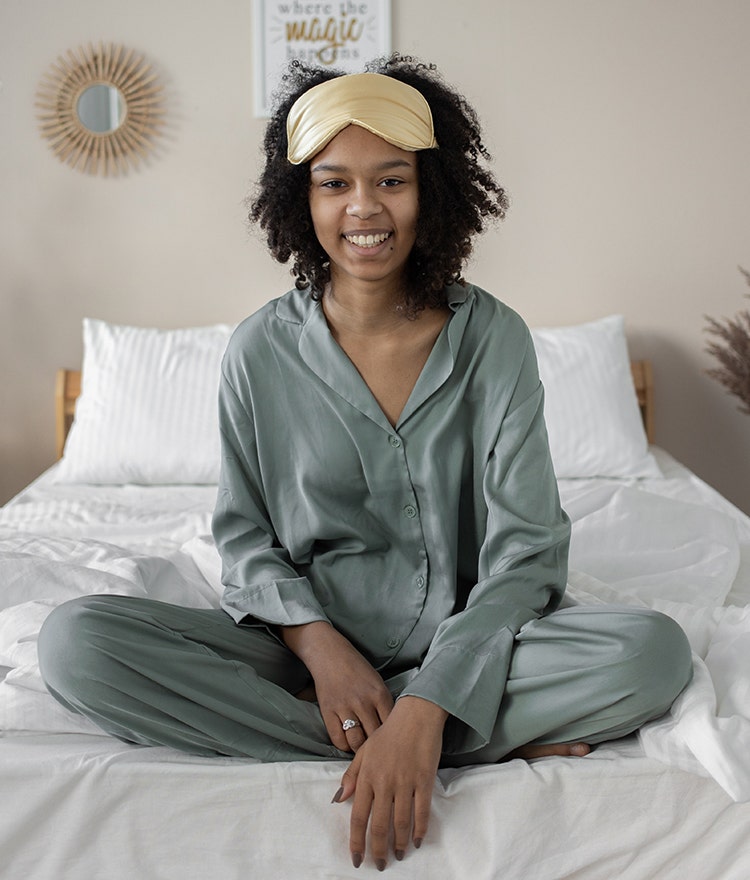

1. You’ll boost your mood
Even if you’re not drinking excessively, you’ve probably experienced feelings of anxiety the morning after you've had a drink or two – this is colloquially referred to as “hang-xiety.” This emotional slump can be attributed to a variety of things, from a dip in your blood sugar to a GABA (a neurotransmitter) rollercoaster to simply regretting things you may have done or said the night before. When you avoid drinking, you avoid hang-xiety and boost your mood.
2. You may feel less bloated
It’s not uncommon to experience an upset stomach the morning after drinking alcohol. Chronic alcohol use can bring on inflammation in the GI tract, bringing on all sorts of problems in the body from weight gain to bloating to digestive issues. Taking a break can give your body a rest and help that bloating go down. It may also help you avoid late-night DoorDashing or other snack binges.
3. Your wallet will thank you
Depending on where you live, alcohol can be expensive – especially if you’re shelling out $15 to $20 for just one fancy cocktail or glass of wine, that adds up fast. Even a regular habit of happy hour beers after work can put a dent in your budget. If budgeting is a part of your New Year’s resolution, Dry January might help you work toward that end – and if not, your wallet will thank you anyway!
4. You might reevaluate your relationship with alcohol
That five o’clock feeling … some of us know it oh-too-well. An after-work drink (or two) is a method many people use to destress and wind down after a long day. But over time, when you use drinking alcohol as one of your main coping strategies, it can mask underlying depression or anxiety while simultaneously worsening your symptoms … which just may lead to more drinking! A pause on alcohol may give you space to reflect on why you drink and help you realize that you don’t have to drink every day or even drink at all.
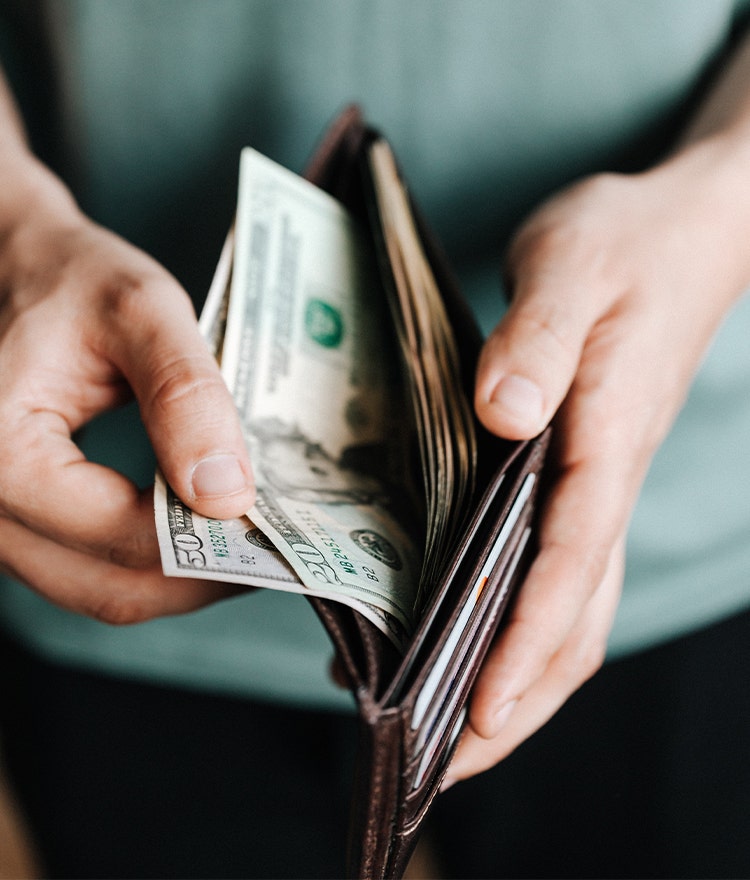

5. Here’s the kicker: you’ll sleep better!
To put it simply, alcohol can help you to fall asleep easier, but it makes it harder to stay asleep. Moreover, the quality of sleep you get isn’t ideal – so even if you don’t suffer from alcohol’s middle-of-the-night awakenings, you’ll probably wake up groggy in the morning after drinking. Giving up drinking for a month will without a doubt improve your sleep, giving you more energy for other activities – i.e., your other New Year’s resolutions!
The confusing relationship between alcohol and sleep
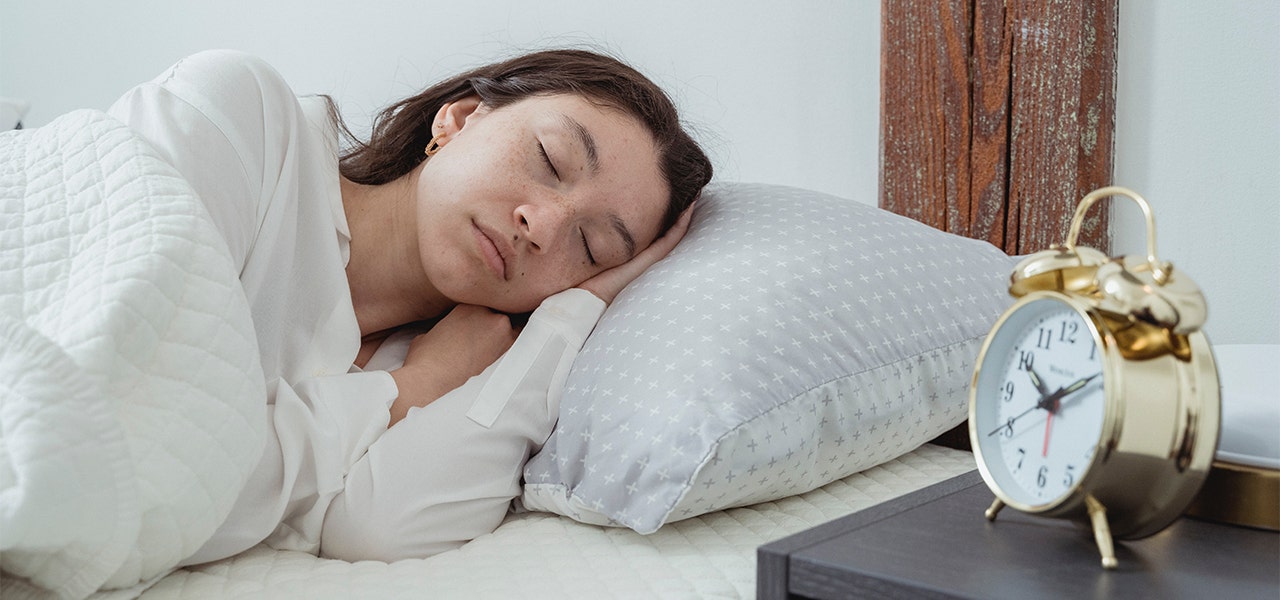

Hearing that alcohol makes you sleep worse might cause some dissonance in your brain – don’t we fall asleep easier after a couple drinks? While it’s true that alcohol is a sedative and can induce feelings of relaxation and sleepiness, the consumption of alcohol – especially in excess – has been linked to poor sleep quality and duration.
Drinking alcohol before bed can lead to decreased REM sleep earlier in the night, because alcohol is a sedative and causes one to fall into deep sleep rather quickly. As the night progresses, this leads to less REM sleep – the restorative, quality sleep your body needs. This means that you’ll likely wake up feeling groggy.
Not to mention that alcohol leads to more wakeups for a variety of reasons! Less REM sleep means more slow-wave sleep, which is easily disrupted. Alcohol is also a diuretic, which means more bathroom breaks throughout the night. Hang-xiety plays a role in wakeups as well by making it much harder to fall back asleep.
Additional ways to sleep better this year
There are lots of ways you can improve your sleep quality during Dry January and beyond! Practicing good sleep hygiene – the practice of putting yourself in the position to sleep well each and every night – should be on everyone’s list of New Year’s resolutions. This includes:
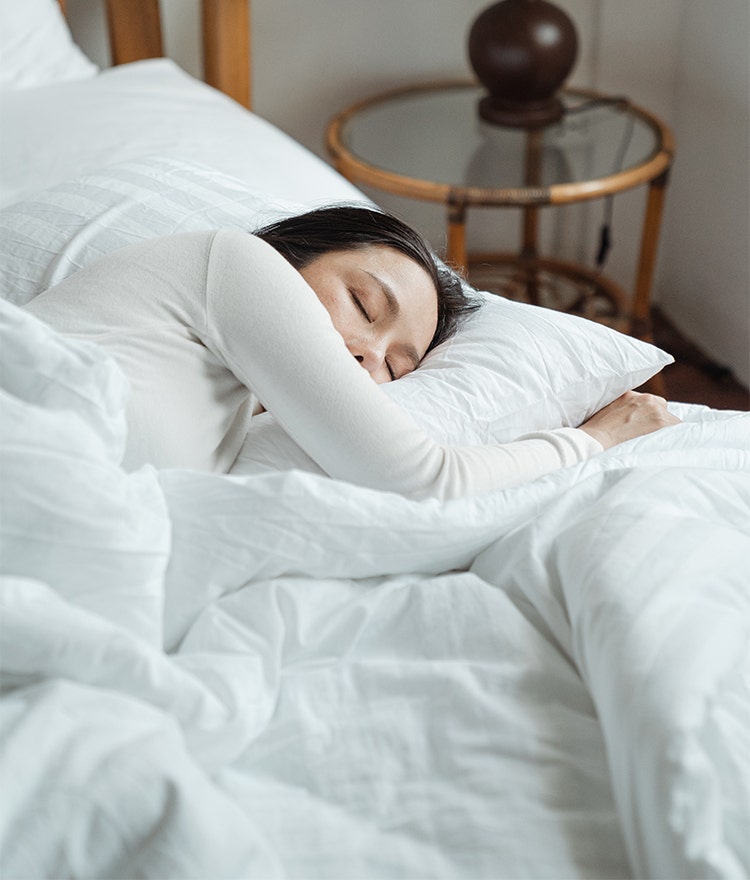

- Maintain a regular sleep schedule
- Unplug an hour before bed to avoid blue light
- Limit your caffeine and alcohol intake
- Stick to a routine that helps you unwind at night
- Create a safe, healthy and comfy sleep environment
To that last point: never underestimate the power that the right mattress has on your sleep quality. Happsy’s organic bed-in-a-box provides the comfort you need for a good night’s sleep – and it’s certified organic and non-toxic for your health and the planet’s health, too. So, you can rest easy and worry free on comfort that won’t weigh on your conscience.
Looking for more sober ways to unwind this January? Check out these 5 Greener Ways to Relax … they’re planet friendly, too!
